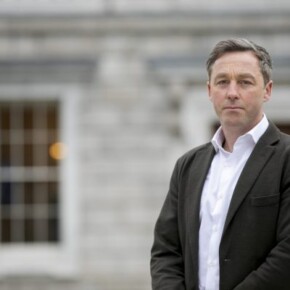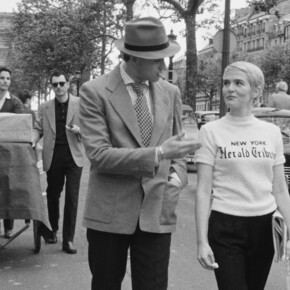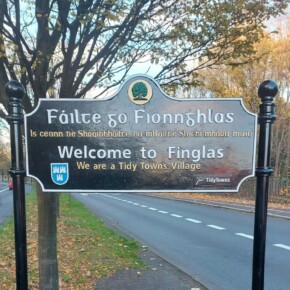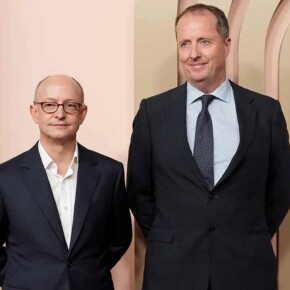McAuliffe calls for reform of local government in Dublin
Mike Finnerty 22 Nov 2023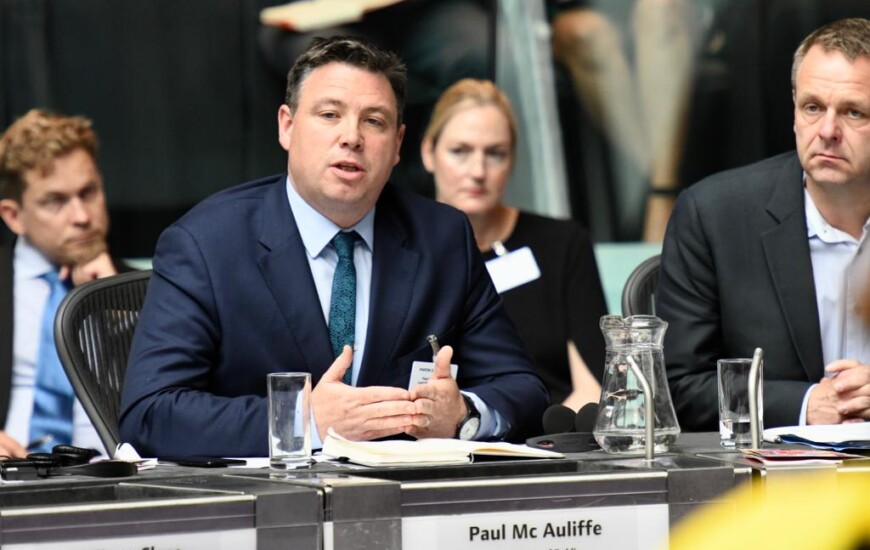
Fianna Fáil TD Paul McAuliffe says he is in favour of Dublin having a directly-elected mayor – but only on the condition the mayor works in tandem with a local council that has significantly more powers than it does now.
Next year’s local elections will mark the third set of local elections since the 2014 Local Government Reform act came into play, which significantly reformed local government across Ireland.
Town and borough councils were abolished in the wake of the act, county council districts had their boundaries significantly withdrawn, and in the context of Dublin, saw the Chief Executive of Dublin City Council granted more power.
Speaking to Northside People, McAuliffe, Vice Chair of the Joint Oireachtas Committee on Housing and Local Government, said “Ireland is poorer for it,” ever since the bill was signed into law in January 2014.
Introduced to the Dáil by then-Minister for the Environment, Community and Local Government Phil Hogan, the bill was widely seen as a cost-cutting measure in the context of the austerity facing Ireland at the time.
“I think it’s somewhat absurd that part-time councillors are expected to run cities,” McAuliffe said, noting that Fianna Fáil were in opposition to the policy at the time.
McAuliffe noted that the abolishment of town and borough councils did not necessarily affect Dublin in this instance, but acknowledged the effects were felt across Ireland.
He said that Dublin was spared from the wide-spanning reforms that changed local politics across Ireland, with Dublin seeing their own local government reformed in 1994.
A Fianna Fáil measure, the act established Dún Laoghaire Rathdown County Council, South Dublin County Council and Fingal County Council.
“We (Fianna Fáil) implemented that act in the 90s and it certainly had its merits,” McAuliffe said.
A recent report from the Council of Europe found that Ireland had the dubious distinction of having the 4th-weakest local government system in Europe, only above the likes of Russia, Hungary and Moldova, all nations categorised as “flawed democracies.”
The prospect of Dublin having a directly-elected mayor has been long in the works, with the idea first floated during the Fianna Fáil-Green coalition of 2007 to 2011, and there are indications that Dubliners may finally get the chance to cast their votes for a directly-elected mayor next June.
It is anticipated that the election may fall on the same day as local and European elections, but McAuliffe said that a directly-elected mayor would need a strong council behind them.
“Electing a directly-elected mayor is a positive step forward, but it isn’t a silver bullet by any means,” he said.
“A directly-elected mayor would need the floor below them padded out,” remarking that the current system of local politics in Ireland is akin to the Victorian era.
“To run a city the size of Dublin better, we need reform.”
Independent councillor on Fingal County Council Tania Doyle told Northside People “in essence, Irish councillors possess fewer powers than their counterparts in most other countries.”
“They have limited financial autonomy, and all he while,the position and powers of Chief Executives have grown stronger.”
This, Doyle asserts, has led to a “lopsided dynamic that marginalises the elected councillors,” and the erosion of democratic accountability raises concerns about the viability of the current system.
McAuliffe proposed that the size of Dublin City Council be reduced, but in exchange elected representatives are granted more power, in line with council members in the United Kingdom.
“You also see that system in place in the United States, and while I certainly wouldn’t look to America for advice, the system they have for local politics works,” he noted.
With his party currently in charge of local government in Ireland, McAuliffe was asked about what his party have done to promote the tenet of local democracy in Ireland.
McAuliffe cited the power granted to them by Minister Darragh O’Brien in relation to planning permission as an example of Government empowering local councils to make important decisions.
“It’s a sense of ‘go on, let’s see how you do with housing’.”
He said that local authorities being granted more autonomy on housing issues is a “big opportunity” for them.
Prior to his election in the 2020 General Election, McAuliffe served as a councillor for the Ballymun-Finglas area, remaining in the role for over 10 years and also serving as Lord Mayor of Dublin during that time.
He noted that out of the 52 councillors elected alongside him in the 2009 local elections, 23 of them vacated their seat during their time on the council.
“There are barriers to people running for local office in this country, and this is a real shame,” saying that while people who work in the HSÉ are afforded time off to attend council meetings, those who work in more front-facing or public sector jobs are not afforded the same luxury.
“Laws were passed in the mid-2010s that looked to make Irish politics transparent, and it was great those laws were enacted, but I think it might serve as a barrier to people who want to enter the world of politics.”
Despite the reservations with the current system – and a clear desire to reform it – McAuliffe said there was a great benefit to being a councillor.
“In a way, I actually had more power to help my constituents as a councillor than I do now as a TD,” he admitted.
“If you really want to make a difference to your local community, there is no better way to solve that than by running for local government.”



